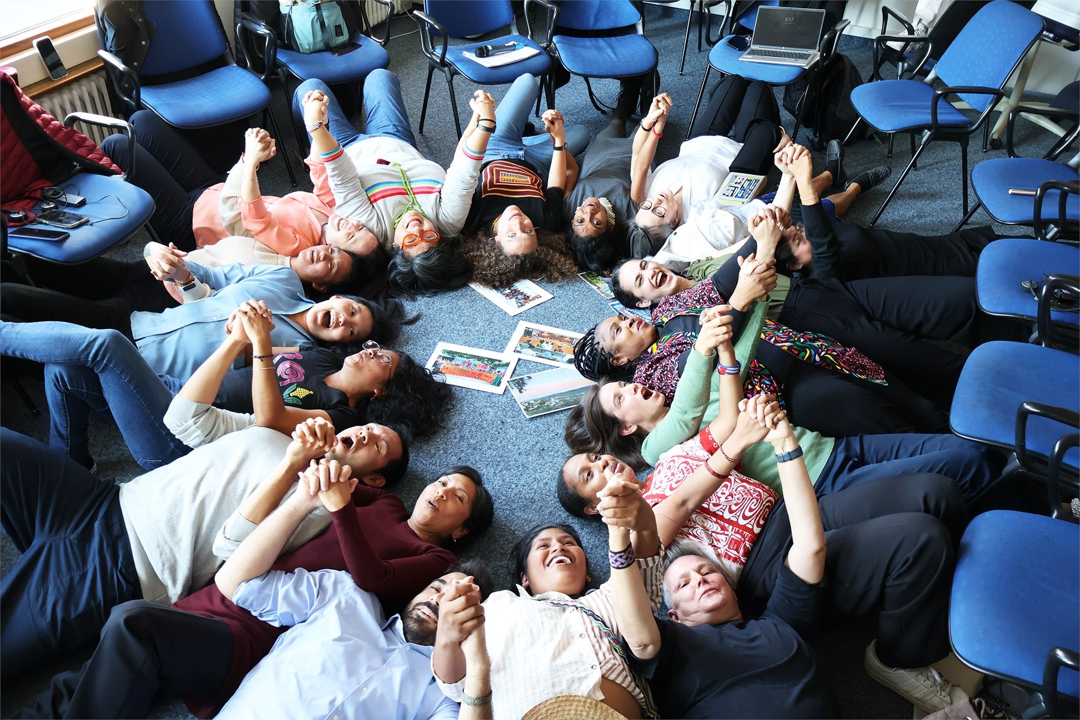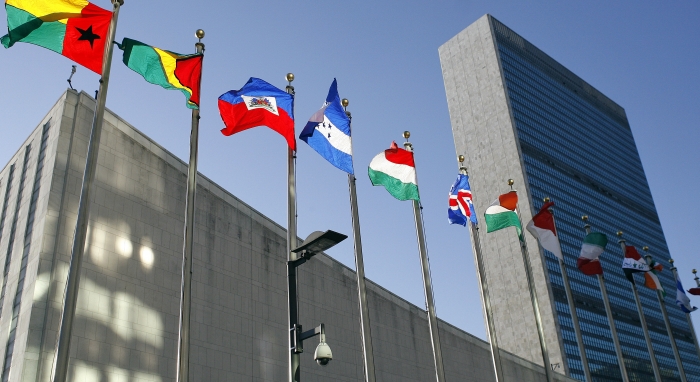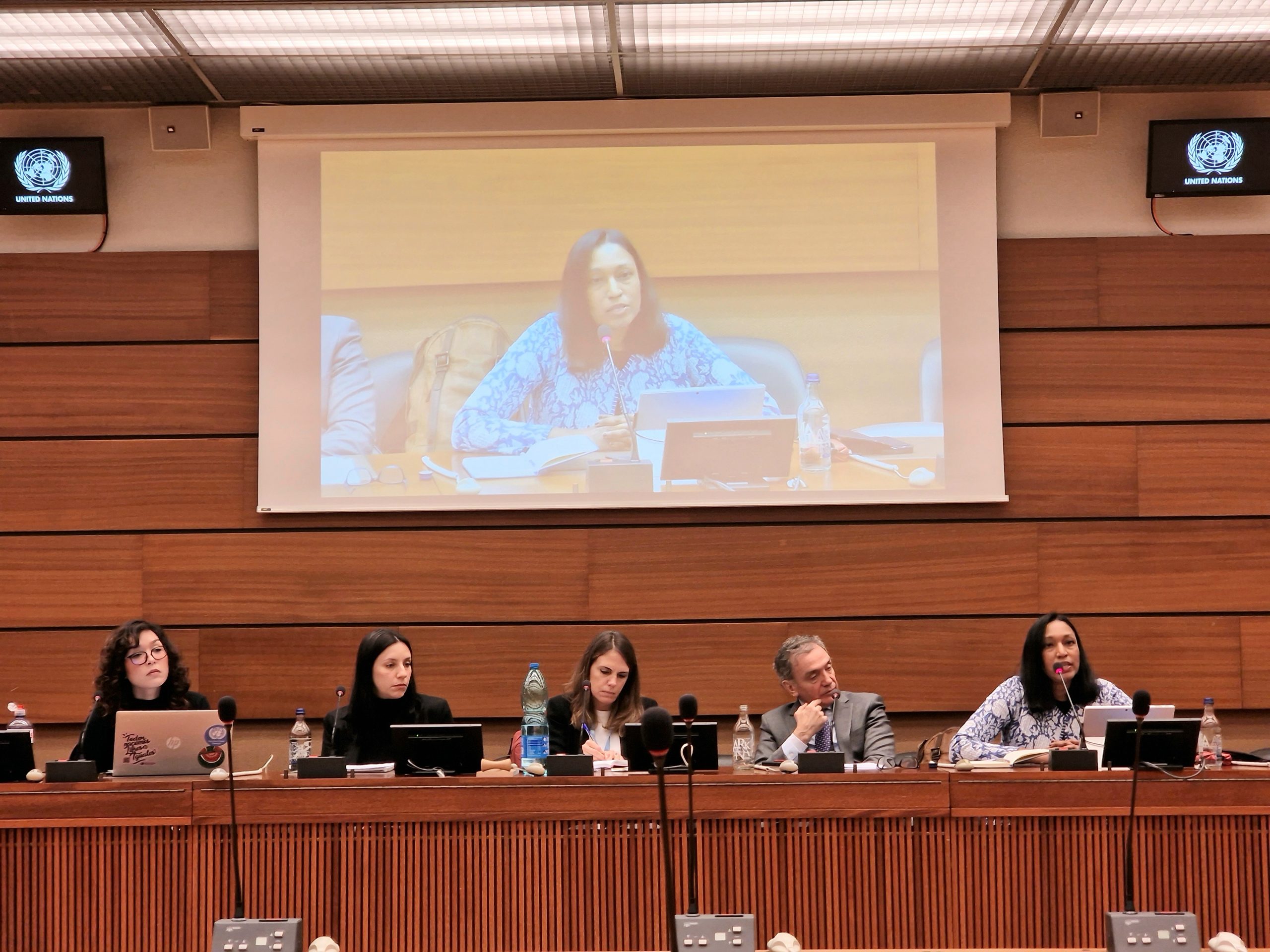After years of calls for improvements in the practice of the NGO Committee, ECOSOC took a significant step in the right direction today by deciding to institute webcasting of all NGO Committee open sessions. The practice of the NGO Committee – that makes recommendations regarding NGO accreditation with the UN – has been much criticised, including for its lack of transparency. The resolution on webcasting, introduced by Chile, on behalf of Mexico and Uruguay, was adopted by ECOSOC without opposition.
‘This is a great outcome,’ said ISHR’s Eleanor Openshaw. ‘Instituting webcasting is an important advance in efforts to improve the workings of the Committee and a significant pushback against restrictions to civil society participation at the UN.’
‘We are hugely appreciative of the leadership Chile, Mexico and Uruguay have consistently shown on the issue of reforming the NGO Committee and for their work in securing this decision on webcasting; and thank every State that voted in favour,’ she added.
During the debate, several States highlighted the benefits of webcasting. These benefits include the fact that NGOs the world over can now follow consideration of their cases directly; and that webcasting will allow applicants to understand the UN system better, provide the UN with accurate information when applying for accreditation, and be encouraged to participate including in the implementation of Agenda 2030.
Opposition to the resolution had been expected. At the NGO Committee, attempts to limit coverage of meetings have been made. Initiatives to discuss webcasting in the Committee have not prospered. During the ECOSOC session, several States – including China, Pakistan, South Africa and Venezuela – noted that ECOSOC should not interfere in the work of the NGO Committee. However, these concerns ultimately held no sway. China called for a vote but then abstained. The resolution passed with 37 in favour, 16 abstentions and one absention.
‘When it came to it, no State wanted to be seen to vote against an initiative presented by the sponsors as increasing accessibility for NGOs from the global south,’ said Eleanor Openshaw.
ECOSOC took action on a second resolution granting accreditation to the NGO Christian Solidarity Worldwide (CSW) which works to promote freedom of religion and belief worldwide. In January the NGO Committee had voted to recommend denying CSW accreditation. CSW’s application has been considered by the Committee 14 times, and they had received 80 questions. ECOSOC rejected the Committee’s recommendation and accredited CSW by 28 votes to 9, with 12 abstentions.
Prior to that vote, the UK noted that ‘the NGO Committee should enable, not frustrate the work of the NGOs.’ Estonia (for the EU) said that the NGO Committee ‘must honour and be seen to honour the vital role of civil society’.
Finally, hopes were dashed that ECOSOC would reject recommendations made to deny a group of Turkish NGOs (and NGOs until recently based in Turkey) information about the rejection or withdrawal of their accreditation, or an opportunity to challenge these decisions. Several States, including the US, EU and Norway, criticised the Committee for setting aside established procedures in these cases, but no further statements were made or action taken when ECOSOC considered the Committee decisions one by one.
‘ECOSOC’s confirmation of NGO Committee recommendations in these cases is deeply troubling. The UN has effectively closed the door on these NGOs,’ said Eleanor Openshaw. ‘In line with legal opinion we have received, we consider these decisions by ECOSOC may be unlawful.’




